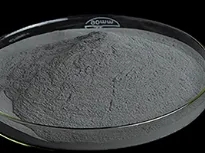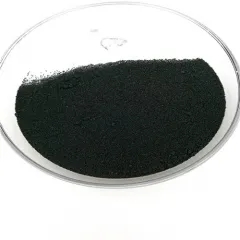If you are looking for high-quality products, please feel free to contact us and send an inquiry, email: brad@ihpa.net
Titanium disilicide (TiSi2), as a metal silicide, plays an important duty in microelectronics, especially in Very Large Scale Assimilation (VLSI) circuits, due to its excellent conductivity and reduced resistivity. It dramatically minimizes contact resistance and enhances current transmission effectiveness, contributing to high speed and reduced power usage. As Moore’s Legislation approaches its limits, the development of three-dimensional assimilation technologies and FinFET designs has made the application of titanium disilicide vital for maintaining the efficiency of these advanced manufacturing processes. Furthermore, TiSi2 reveals terrific prospective in optoelectronic devices such as solar batteries and light-emitting diodes (LEDs), along with in magnetic memory.
Titanium disilicide exists in multiple stages, with C49 and C54 being one of the most typical. The C49 stage has a hexagonal crystal framework, while the C54 stage displays a tetragonal crystal framework. Due to its lower resistivity (approximately 3-6 μΩ · centimeters) and higher thermal security, the C54 phase is chosen in industrial applications. Various techniques can be made use of to prepare titanium disilicide, including Physical Vapor Deposition (PVD) and Chemical Vapor Deposition (CVD). The most typical technique entails responding titanium with silicon, transferring titanium films on silicon substrates using sputtering or evaporation, complied with by Quick Thermal Handling (RTP) to create TiSi2. This method permits exact density control and consistent circulation.
(Titanium Disilicide Powder)
In regards to applications, titanium disilicide locates extensive usage in semiconductor devices, optoelectronics, and magnetic memory. In semiconductor devices, it is employed for resource drain calls and gate calls; in optoelectronics, TiSi2 stamina the conversion effectiveness of perovskite solar batteries and boosts their stability while lowering problem density in ultraviolet LEDs to enhance luminescent effectiveness. In magnetic memory, Spin Transfer Torque Magnetic Random Gain Access To Memory (STT-MRAM) based on titanium disilicide includes non-volatility, high-speed read/write capacities, and reduced power usage, making it an excellent prospect for next-generation high-density data storage media.
Despite the significant possibility of titanium disilicide throughout various high-tech fields, obstacles continue to be, such as further lowering resistivity, boosting thermal security, and establishing reliable, affordable large-scale manufacturing techniques.Researchers are exploring brand-new product systems, enhancing user interface design, regulating microstructure, and developing environmentally friendly processes. Initiatives include:
()
Searching for new generation products via doping various other elements or modifying compound structure proportions.
Looking into ideal matching plans in between TiSi2 and various other materials.
Utilizing sophisticated characterization methods to explore atomic setup patterns and their impact on macroscopic homes.
Devoting to green, green new synthesis courses.
In summary, titanium disilicide attracts attention for its fantastic physical and chemical residential or commercial properties, playing an irreplaceable role in semiconductors, optoelectronics, and magnetic memory. Encountering expanding technical needs and social responsibilities, strengthening the understanding of its essential clinical principles and exploring innovative services will certainly be key to progressing this field. In the coming years, with the introduction of even more advancement results, titanium disilicide is anticipated to have an even more comprehensive advancement prospect, continuing to contribute to technical development.
TRUNNANO is a supplier of Titanium Disilicide with over 12 years of experience in nano-building energy conservation and nanotechnology development. It accepts payment via Credit Card, T/T, West Union and Paypal. Trunnano will ship the goods to customers overseas through FedEx, DHL, by air, or by sea. If you want to know more about Titanium Disilicide, please feel free to contact us and send an inquiry(sales8@nanotrun.com).
All articles and pictures are from the Internet. If there are any copyright issues, please contact us in time to delete.
Inquiry us

